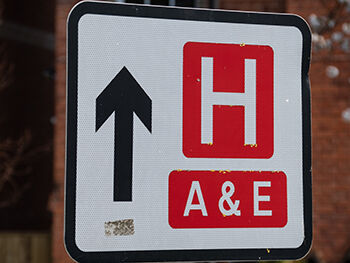University News Last updated 19 August 2020

A medical expert has warned the UK Government’s new strategy to limit attendance at A&E by only accepting GP or 111 referrals is ‘inherently biased’ against mental health patients.
Kim Moore, senior lecturer in mental health and disability at Birmingham City University, cautions that by placing additional barriers into the treatment pathway, the current system potentially discriminates against people experiencing mental distress, crisis or illness or learning disabilities.
NHS England is expected to roll out a new ‘111-first’ A&E model before winter 2020, with pilots running in London, Portsmouth and Cornwall.
“Previous public information campaigns have stressed A&E is for ‘real’ issues such as strokes, haemorrhages, coronary disease other physical health conditions and medical emergencies,” the academic said, highlighting that the current ‘help us to help you’ campaign and 111 advice “omits any references to mental health.”
“Mental health service users have consistently identified the indignity of having to repeat their thoughts, feelings and emotional distress over and over again which can lead to intensifying the emotional trauma, withdrawing from seeking help or feeling re-traumatised by the experience."
Under the current proposal, potential A&E patients will be required to go through an additional triage assessment via the 111 service, adding to the number of people who will be asking the same or similar questions and assumes that the caller is able and willing to seek advice.
“Other mental health conditions can mean patients are not aware of the risks to themselves or others,” continues, Moore, saying “They may not consider themselves to be unwell or do not have the words to describe what is happening to them. Replacing A&E walk-in could mean this population will be excluded from the support that could potentially prevent worsening of their symptoms.”
Medical professionals across the UK have spoken out against the new A&E proposal, which follows recent reports that almost two million patients waited longer than 18 months for routine hospital treatment in the month of June this year.